As the blur of Sundance 2022 clears, we can finally sort our thoughts on a variety of the fest’s selections. Today, a pair of scandalous documentaries: one about 21 JUMP STREET-ing a high school to relive your glory days, and another about listening to The Strokes. So, almost the same topic. Our own Hilary Jane Smith tackles Jono McLeod’s MY OLD SCHOOL, while Editor-in-Chief CJ Simonson tries to make peace with MEET ME IN THE BATHROOM.
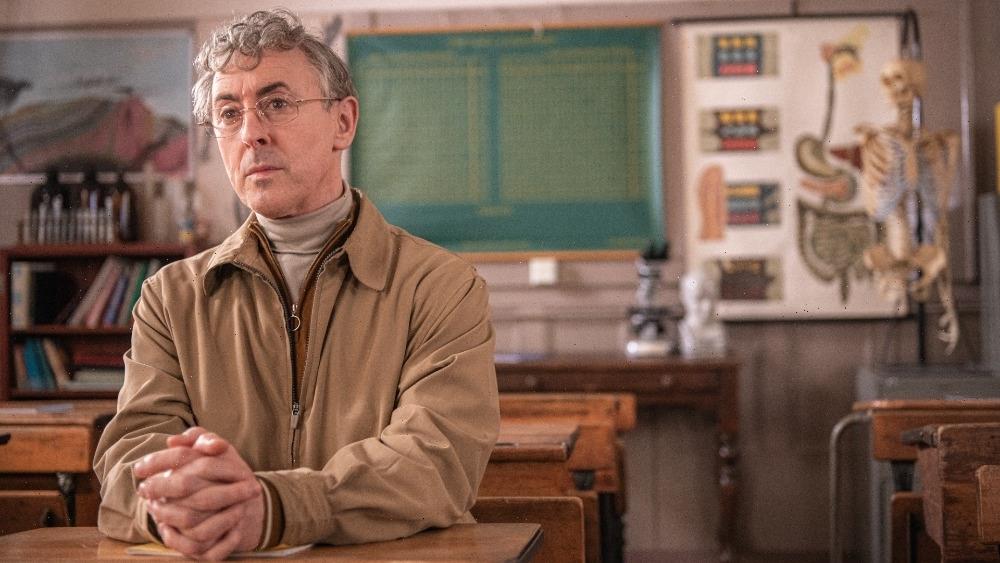
MY OLD SCHOOL
Director: Jono McLeod
All I knew going into MY OLD SCHOOL was that Alan Cumming was in it, and how it was about a high school in Glasgow, Scotland. Great. Sold. I love both Glasgow and Cumming, and I was senior class president of my high school in California, so I have sentimental feelings about “high school” as a dramatic motif. What I did not realize was that I was about to learn about some crazy 1990s tabloid story about one Brandon Lee, a 32-year-old man posing as a teenager to relive his high school years and achieve his life-long dream of attending medical school. What?! MY OLD SCHOOL is from Scottish news producer Jono McLeod, a classmate of Brandon’s and a first-time filmmaker. McLeod interviews his old classmates to parse together the story of Brandon’s miraculous year where he duped his teenage peers and school staff with fabricated stories, excellent grades, and a winning personality. The story is deeply unsettling, and wild to imagine, especially after watching a late-20s Ben Platt attempt to play a high school student in DEAR EVAN HANSEN, but it’s hard to not laugh at the absurdity of it all.
Even Brandon’s fellow students, who are now in their forties, can’t help but laugh and appreciate it all in hindsight. A striking moment comes when Brandon scores the lead in the school musical SOUTH PACIFIC, and he sings the song “Younger Than Springtime.” McLeod plays the clip from the performance for his former schoolmates and they are still amazed that it all happened. The real Brandon Lee, or should I say Brian MacKinnon, did not want to be seen on camera, so Alan Cumming performs a lip sync to a recording of MacKinnon, in addition to voicing the young Brandon in animated sequences. What’s fascinating in Cumming’s performance is that he was originally set to play Brandon in a 90s adaptation of the story that was never made. While the Cumming performance is a bit off-putting, his appearance in this documentary as Brandon makes the surreality play even weirder. The film fantastically utilizes animation in the vein of MTV’s DARIA, blending the fictional with factual. McLeod dares both the viewer and his subjects to identify the truth from the story, and oftentimes we get caught up in the salacious details like we’re all back in high school gossiping. Once the film goes a bit less surreal, and a little more procedural by including more talk show clips and early interviews with MacKinnon, the story becomes less captivating, all a bit more vanilla. A flaccid third act dives into the origin story of the “real” Brandon/Brian and falls flat. But the few boring bits aside, it’s a fairly light documentary, and I loved the contrasting styles McLeod plays with. I’m not sure where this will be shown outside of the festival, but here’s hoping it makes it onto Netflix for your next pick while you’re folding laundry. [Hilary Jane Smith]
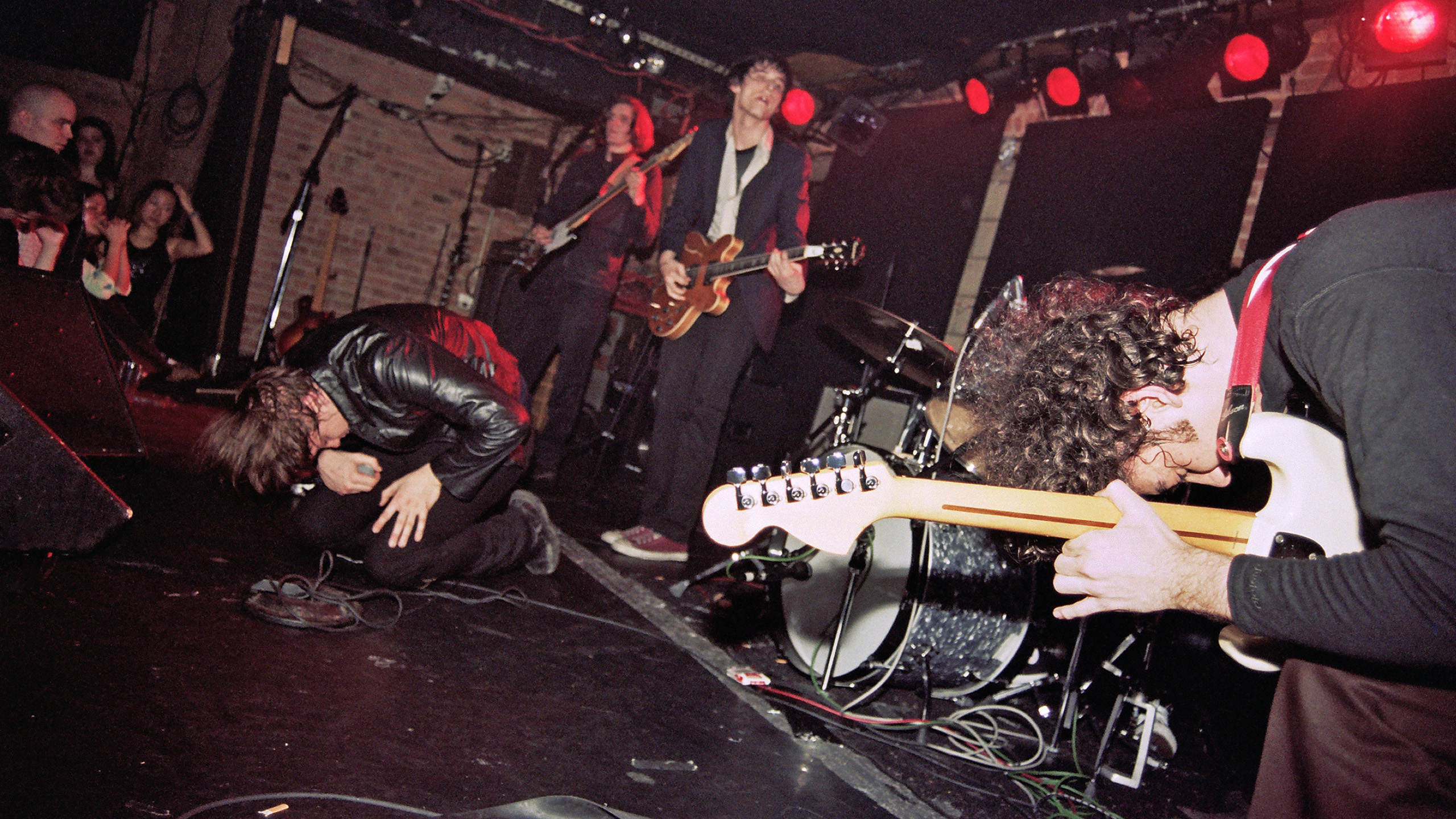
MEET ME IN THE BATHROOM
Directors: Dylan Southern, Will Lovelace
Our cultural grasp on nostalgia hangs in the balance. Western cultures have always been notoriously wistful for things in the recent past, but as our collective memories grow shorter, and the Internet moves faster, the sheer concept might cease to exist outside of our own personal experiences. Directors Dylan Southern and Will Lovelace have already experienced this heightened collapse, which makes their latest rock doc MEET ME IN THE BATHROOM a strange and singular artifact. When the duo documented LCD Soundsystem’s supposed retirement with 2012’s SHUT UP AND PLAY THE HITS, there was retrospectively an unearned sense of finality— the decision to play up the gravitas of the band’s retirement has aged strangely, to say the least. But even if it felt like a proper final chapter in the moment (and it did), that it ultimately wasn’t should’ve taught both filmmakers a lesson on navelgazing the not-so-recent past.
Based on Lizzy Goodman’s excellent oral history of the same name, it’s unclear what purpose Southern and Lovelace’s documentary is meant to serve. While the book was written to act as the millennial Our Band Could Be Your Life for the last semi-pre-internet rock scene to exist, the documentary fails to do any justice to either Goodman’s reporting or the scene in question. Focusing (of course) on the Yeah Yeah Yeahs, The Strokes, Interpol, and LCD Soundsystem, the documentary never quite finds a rhythm in telling each story with any concrete thesis; while the reliance on archival footage holds each narrative back, the structure was likely doomed from the beginning without any commitment to see these acts stories through to the end. Interesting questions go unanswered, and interesting bands (The Moldy Peaches! The Rapture!) are left as supporting characters for already well documented acts. The documentary is left to die on the vine with musical performances that have lived on YouTube since the early days— the irony that Napster killed ANTICS while YouTube actively kills MEET ME IN THE BATHROOM is too much to handle.
There is a solid argument that Goodman’s source material, and the 9/11-era New York City indie rock boom in general, would be better fodder for a miniseries than a 100-minute long documentary, but that would require the focus to shift away from Nardwaur clips. I am, without a doubt, the target audience for MEET ME IN THE BATHROOM, and while I can appreciate looking back on “Someday” or “Maps” or “Losing My Edge” or “PDA” as much as the next aging music critic, it’s a shame to see our nostalgia for this era reduced to unfocused and bland tropes and rehashed 480p MTV footage. I guess I’m excited for the zeitgeist to spit out an inevitable Charli XCX COVID documentary in a few years just so I can continue to reminisce mindlessly on the way music and culture intersect. Oh wait. Shut up and play the hits, indeed. [CJ Simonson]




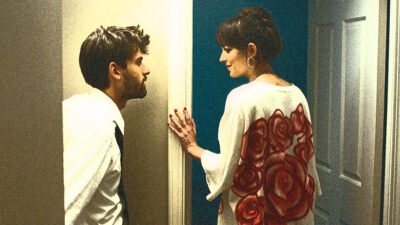


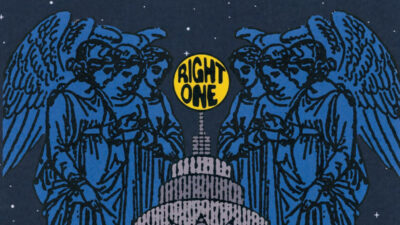

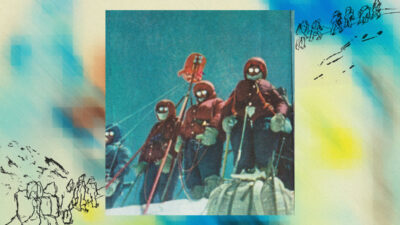
Comments